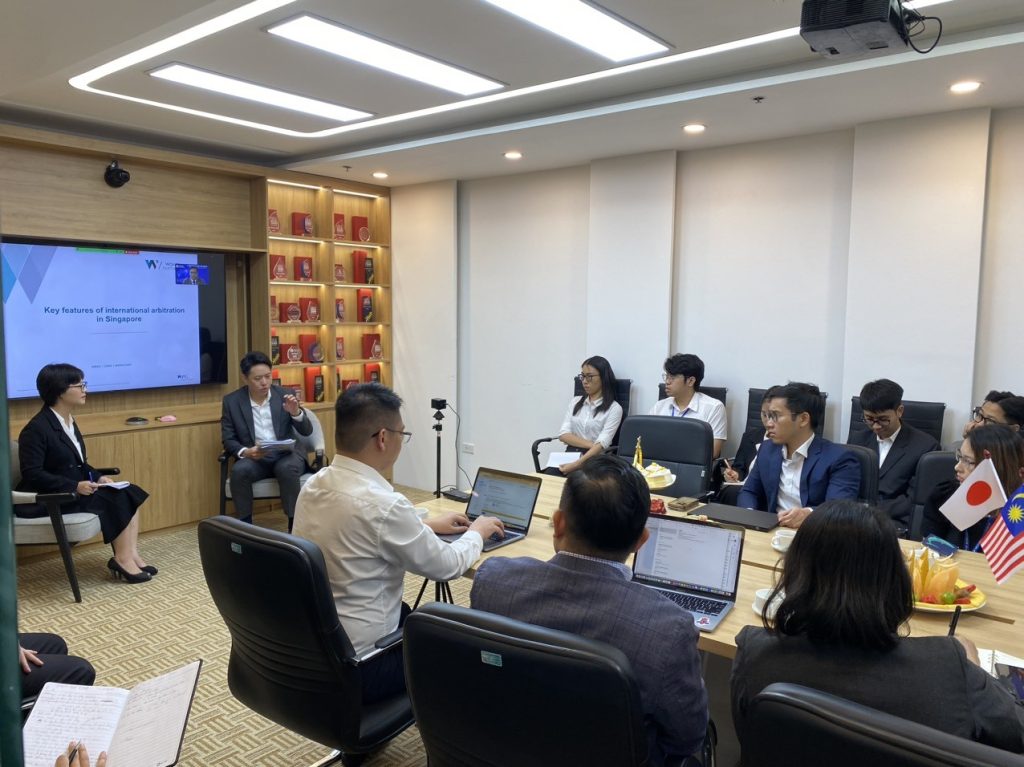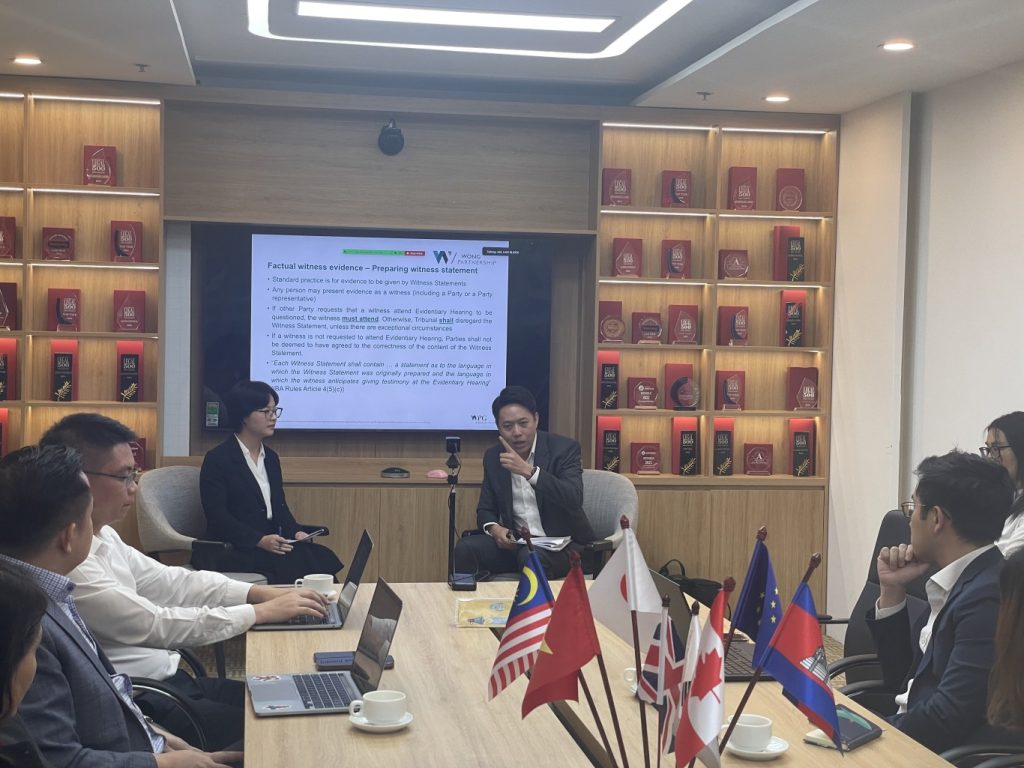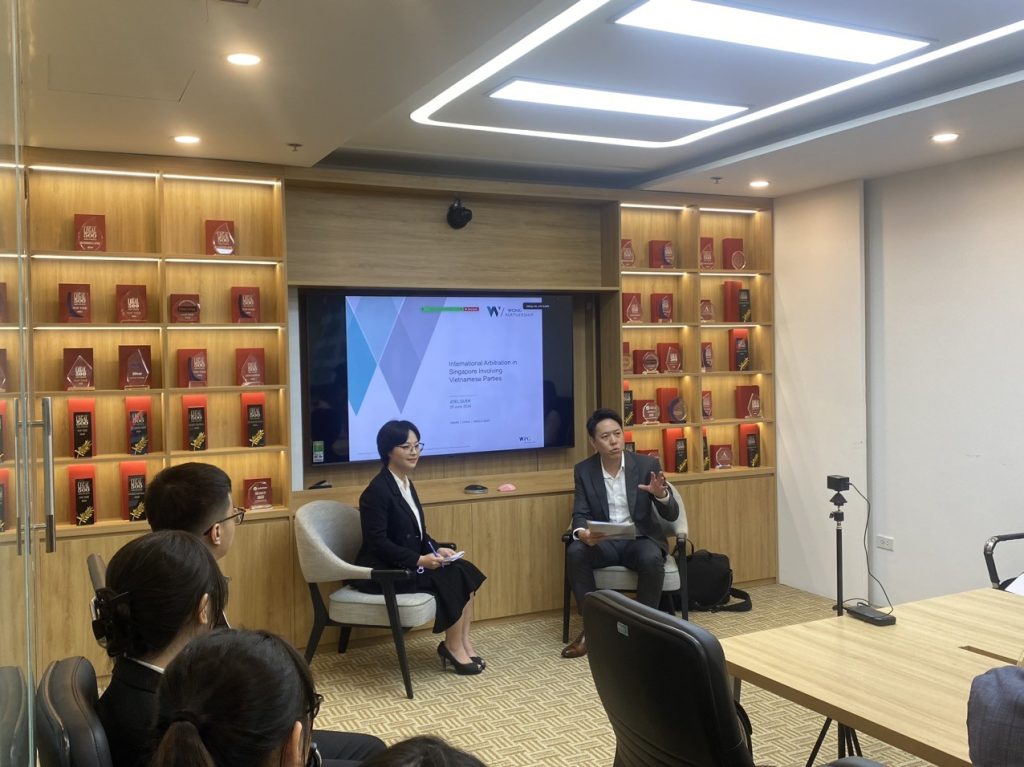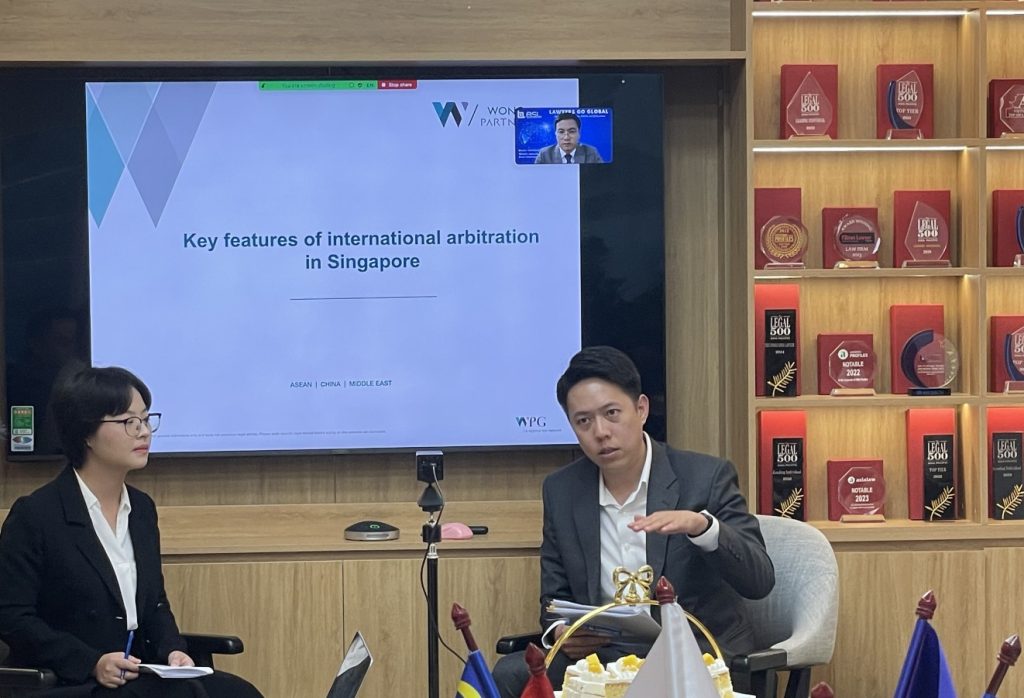On June 25, 2024, ASL LAW, in collaboration with WongPartnership LLP, one of Singapore’s Big 4 law firms, organized a seminar titled “Experience in Resolving Disputes through International Arbitration in Singapore and Enforcement of Arbitral Awards in Vietnam.”
This event brought together leading legal experts and practitioners to discuss key aspects of international arbitration, with a particular focus on the intricacies involved in arbitrations between Singapore and Vietnamese parties.

International arbitration in Singapore, especially involving Vietnamese parties, brings unique challenges and opportunities. Drawing from our experience in this area, ASL LAW aims to shed light on key aspects of the arbitration process, focusing on witness preparation and expert evidence.
Preparing Factual Witness Evidence
Witness Statements as Standard Practice
In international arbitration, witness evidence is typically presented through written witness statements. Any individual, including a party or a party representative, can serve as a witness. These statements are crucial as they lay the foundation for the witness’s oral testimony.
Attendance at Evidentiary Hearings
A critical aspect is the attendance of witnesses at evidentiary hearings. If a party requests a witness to attend for questioning, the witness must comply. Failure to attend, without exceptional circumstances, results in the Tribunal disregarding the witness statement. Notably, if a witness is not requested to attend, it doesn’t imply agreement with the statement’s content.

Language Considerations
Article 4(5)(c) of the IBA Rules stipulates that each witness statement must specify the language in which it was prepared and the language in which the witness expects to testify. This becomes particularly pertinent in arbitrations involving multiple languages, such as English and Vietnamese.
Preparing Witnesses
Counsel often assists witnesses in preparing for the evidentiary hearing. This preparation includes:
- Familiarizing the witness with their statement.
- Reviewing relevant documents.
- Understanding key case aspects.
Dos and Don’ts for Cross-Examination
Cross-examination consists of interrogating the opposing party’s witness who has already testified. The scope of cross-examination is checking or discrediting the witness’s testimony, knowledge, or credibility.
Witnesses must approach cross-examination with caution and clarity:
- Listen carefully and ensure you understand the question before responding.
- Provide precise answers without elaboration.
- Correct any factual inaccuracies in the questions.
- Take your time, think before answering, and avoid guessing.
- Maintain composure and avoid arguments.

Expert Witness Evidence
Role and Preparation of Experts
Under the common law/adversarial approach, parties usually appoint experts whose evidence is presented in expert reports. These reports should detail the expert’s qualifications, experience, and independence from the parties (IBA Rules Article 5(2)(a) and (c)).
Pre-Hearing Conferences
Experts often engage in pre-hearing conferences to identify common ground. If an expert’s attendance is requested, they must comply, or their report may be disregarded unless there are exceptional circumstances.
For effective testimony preparation, experts must ensure they are thoroughly familiar with their own reports, demonstrating a deep understanding of the content and conclusions presented. Close cooperation with counsel is essential, as it helps align the expert’s testimony with the overall legal strategy and anticipate potential lines of questioning. Additionally, experts must avoid any contradictions with their reports during testimony, as inconsistencies can undermine their credibility and weaken the case.
Dealing with Vietnamese Law Issues
Arbitration involving Vietnamese law presents additional complexities that require careful navigation. Expert evidence and submissions on Vietnamese law are crucial, as they provide the necessary context and understanding of the legal nuances. Having a co-counsel qualified in Vietnamese law can offer valuable insights, ensuring that all aspects of foreign law are accurately represented and argued. Moreover, challenges to awards based on the misapplication of Vietnamese law need careful consideration to avoid potential risks and ensure the integrity of the arbitration process.
Language and Interpretation in Arbitration
English is often the primary language in international arbitration, but many documents may be in Vietnamese. Therefore, all evidence in Vietnamese must be translated into English, typically without the need for notarization. Finding a skilled interpreter for Vietnamese witnesses is also essential. Before the hearing, it’s beneficial to rehearse with both the interpreter and the witness to ensure seamless communication.
Arbitration involving Vietnamese parties in Singapore requires diligent preparation and a deep understanding of legal nuances. By adhering to best practices in witness and expert preparation, and effectively managing language barriers, parties can navigate the complexities of international arbitration with greater confidence and success.
***ASL Law is a leading full-service and independent Vietnamese law firm made up of experienced and talented lawyers. ASL Law is ranked as the top tier Law Firm in Vietnam by Legal500, Asia Law, WTR, and Asia Business Law Journal. Based in both Hanoi and Ho Chi Minh City in Vietnam, the firm’s main purpose is to provide the most practical, efficient, and lawful advice to its domestic and international clients. If we can be of assistance, please email to [email protected].
ASL LAW is the top-tier Vietnam law firm for in-depth legal advice in Vietnam and internationally. If you need any advice, please contact us for further information or collaboration.

 Tiếng Việt
Tiếng Việt 中文 (中国)
中文 (中国) 日本語
日本語

